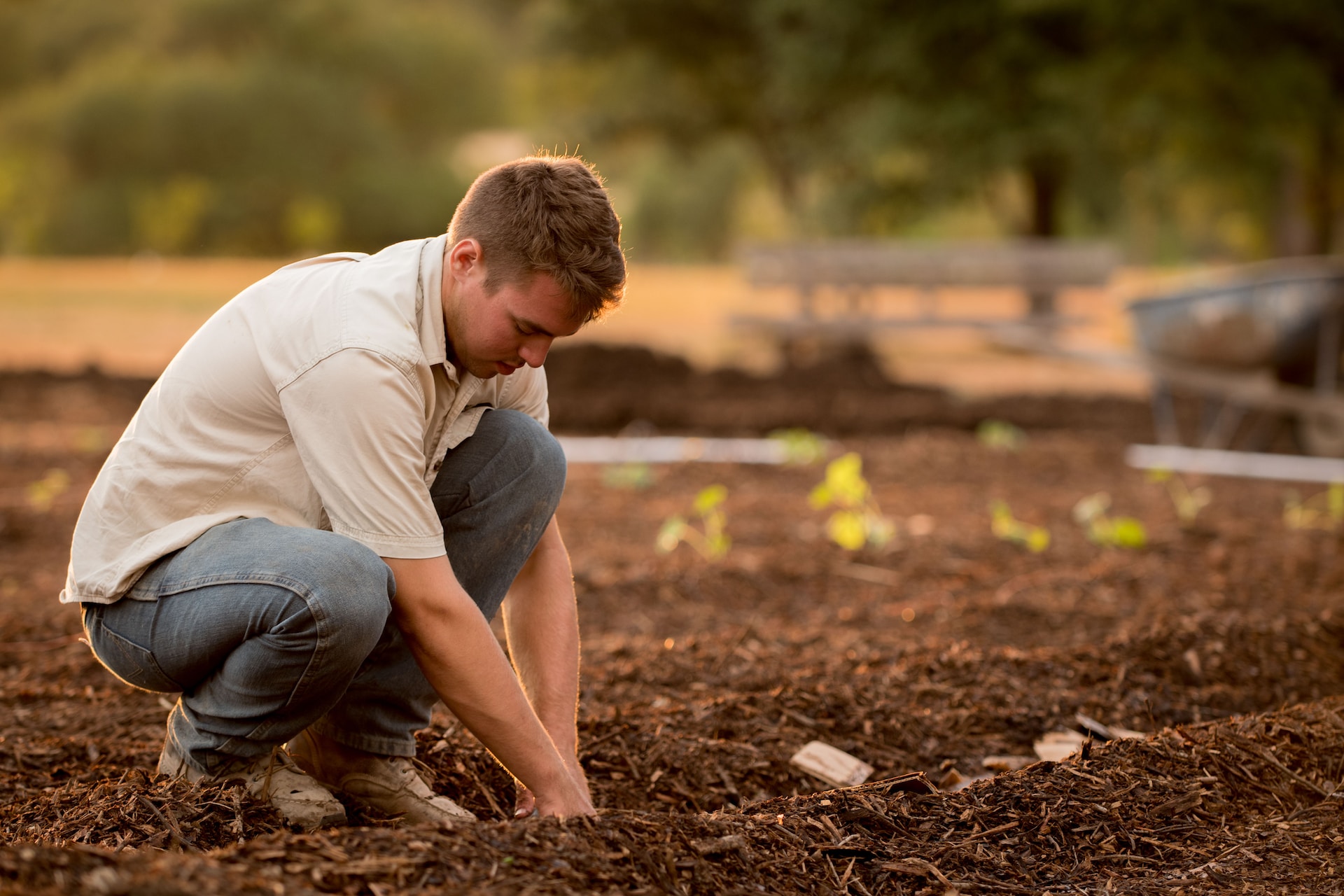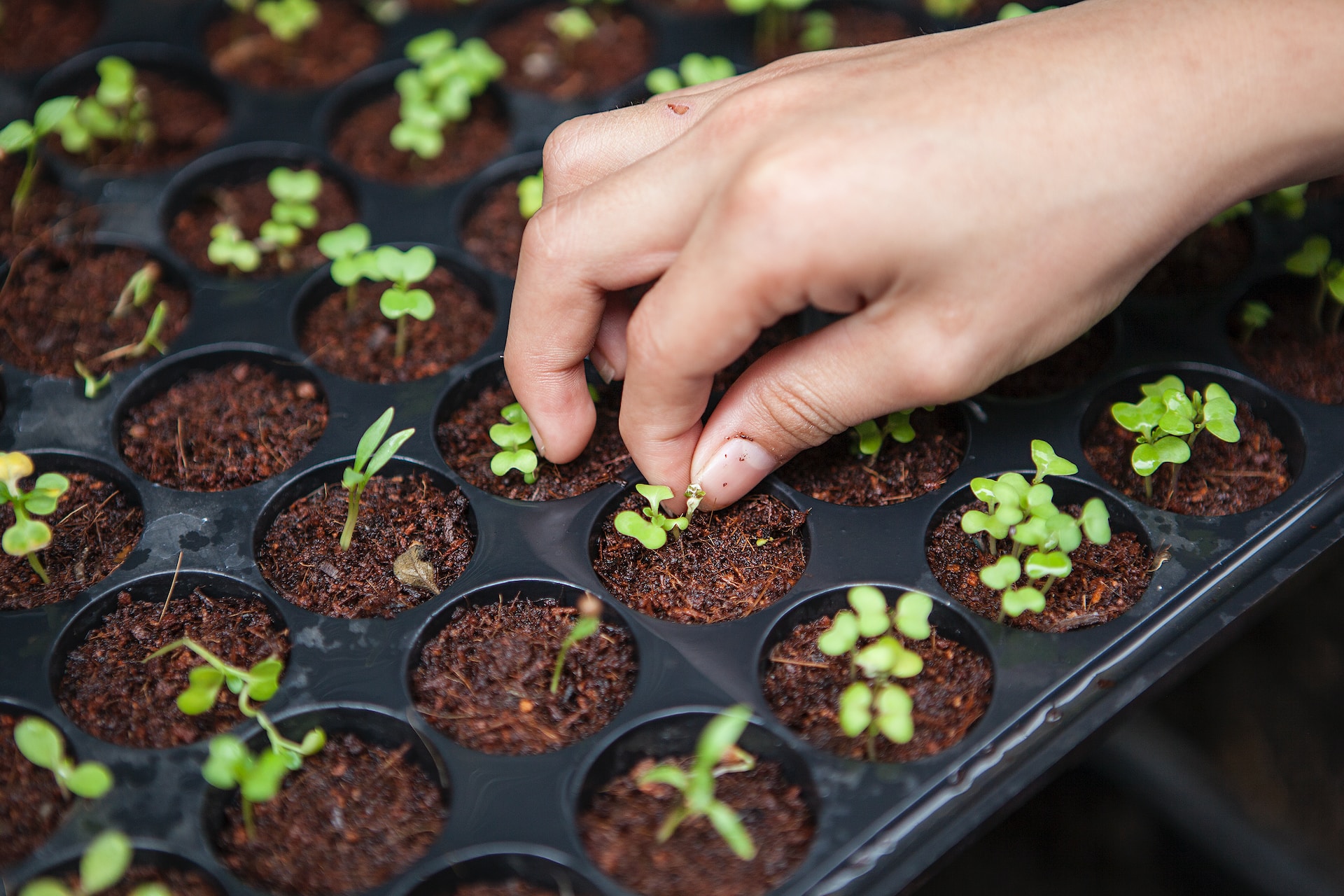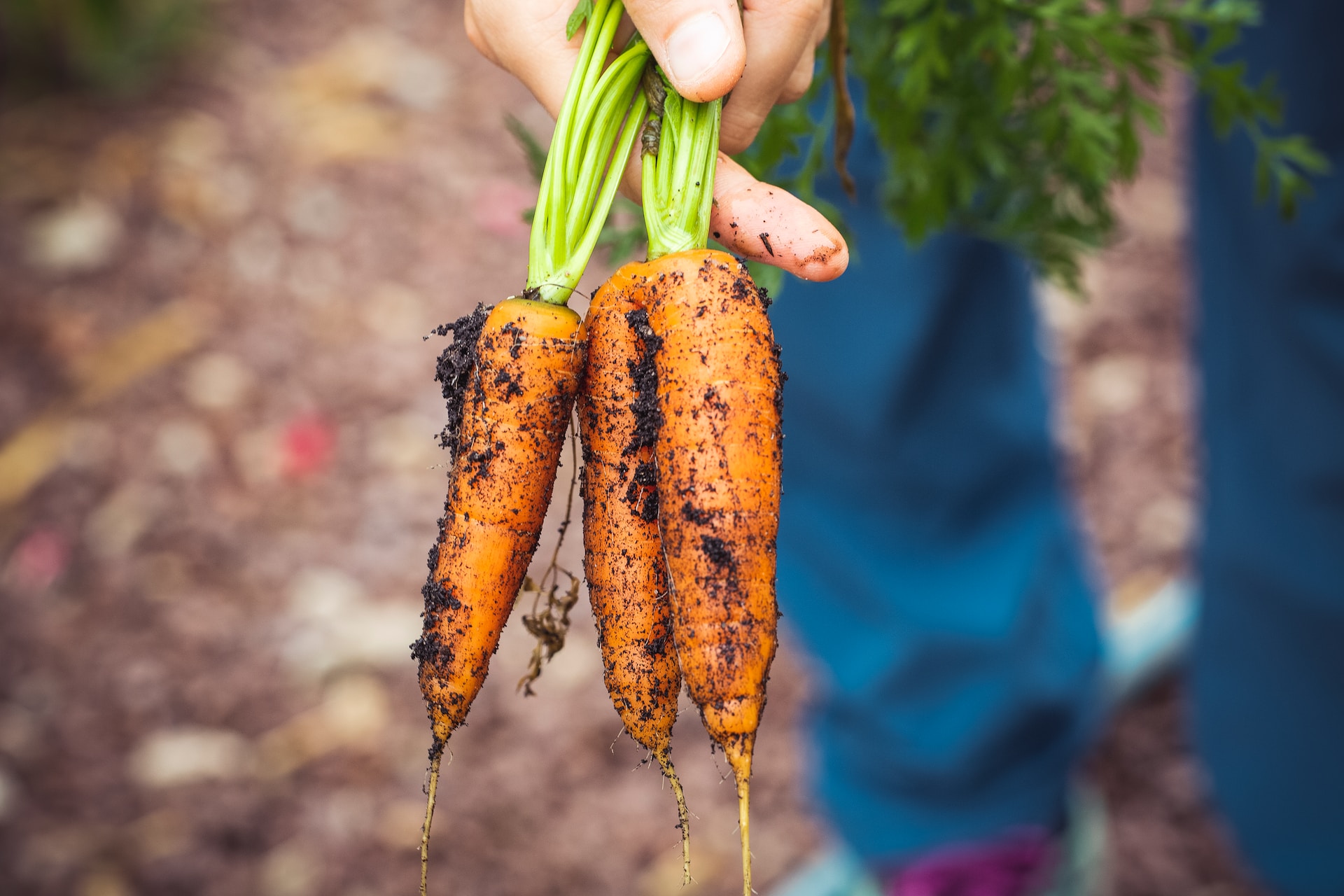Food is a fundamental necessity of life, and the way we produce and consume it has significant implications for the health of our planet. Currently, global food systems face numerous sustainability challenges that threaten the long-term well-being of both the environment and human societies. These challenges include the environmental impact of industrial agriculture, the high carbon footprint associated with large-scale food production, and the depletion of natural resources and loss of biodiversity caused by conventional farming methods.
In light of these challenges, there is a growing interest in exploring alternative approaches to food production, including the idea of individuals growing their own food. The notion of widespread individual food production holds the promise of transforming our relationship with food, fostering local and organic practices, and potentially reducing the strain on the environment caused by conventional agricultural systems.
However, the question remains: If everyone grew their own food, would it truly make the world more sustainable? This article aims to delve into this thought-provoking question and examine the potential impact of widespread individual food production on sustainability.
By critically analyzing the advantages and limitations of individual food production, we can gain insights into whether this approach holds the key to a more sustainable future. Additionally, we will explore the challenges associated with land and space requirements, the time and labor intensiveness, and the necessary skills and knowledge for effective cultivation. It is crucial to consider these factors to ensure that individual food production is a viable and practical solution.
Moreover, this article will highlight the importance of finding a balance between individual food production and existing systems. It is not about advocating for a complete shift from large-scale agriculture to individual food production, but rather exploring ways in which these approaches can complement each other. The integration of individual food production within existing systems, such as community gardens and urban farming initiatives, can play a pivotal role in promoting sustainable practices and fostering local food networks.
Ultimately, this article aims to provide a comprehensive understanding of the potential benefits and challenges associated with widespread individual food production. By doing so, we can shed light on the role it can play in creating a more sustainable world, one where individuals are empowered to connect with nature, reduce their ecological footprint, and contribute to a healthier and more resilient food system.
The Sustainability Challenges of Global Food Systems
Industrial agriculture, with its heavy reliance on synthetic fertilizers, pesticides, and intensive land use, poses significant environmental challenges. The use of chemical inputs contributes to water pollution and soil degradation, harming ecosystems and reducing the fertility of agricultural land. Moreover, the clearance of forests and other natural habitats to make way for large-scale farming operations leads to deforestation, loss of biodiversity, and disruption of delicate ecological balances.
Analysis of the Carbon Footprint and Greenhouse Gas Emissions
Large-scale food production, characterized by long-distance transportation and energy-intensive processes, has a substantial carbon footprint. The transportation of food across continents contributes to greenhouse gas emissions, as does the use of fossil fuels in machinery, irrigation, and the production of agrochemicals. These emissions significantly contribute to climate change, exacerbating global warming and its associated environmental and social consequences.
Depletion of Natural Resources and Loss of Biodiversity
Conventional farming methods often rely on intensive water usage, leading to the depletion of water resources in many regions. Additionally, the use of monoculture practices reduces agricultural biodiversity, making crops more susceptible to pests and diseases. The loss of diverse crop varieties not only reduces resilience but also diminishes the cultural heritage and traditional knowledge associated with local food systems.
Social and Economic Implications
Global food systems also face social and economic challenges. Small-scale farmers often struggle to compete with large agribusinesses, leading to the consolidation of land ownership and the marginalization of local communities. The reliance on genetically modified organisms (GMOs) and patented seeds further concentrates power in the hands of a few multinational corporations, compromising food sovereignty and the ability of farmers to save seeds and determine their own agricultural practices.
By examining these sustainability challenges, it becomes clear that global food systems, as they currently operate, are facing significant ecological and social issues. These challenges call for a critical evaluation of alternative approaches to food production, including the potential benefits and limitations of individual food production.
The Potential Benefits of Individual Food Production
Promotion of Local and Organic Food Production
One of the significant advantages of individual food production is its potential to promote local and organic food production. By growing their own food, individuals have control over the cultivation methods, allowing them to prioritize sustainable practices such as avoiding synthetic pesticides and fertilizers. This shift towards organic farming reduces chemical inputs, minimizes water pollution, and preserves soil health. Furthermore, when individuals produce food locally, it reduces the reliance on long-distance transportation, known as “food miles,” thereby decreasing associated greenhouse gas emissions and supporting local economies.
Reduction of Food Miles and Transportation-Related Emissions
A key benefit of widespread individual food production is the reduction of food miles and transportation-related emissions. Currently, many food items travel long distances before reaching our plates, consuming vast amounts of energy and contributing to carbon emissions. By growing their own food, individuals can significantly shorten the distance between production and consumption. This localized approach reduces the carbon footprint associated with transportation, making individual food production a promising solution for mitigating climate change and promoting a more sustainable food system.
Mitigation of Waste and Increased Food Security
Individual food production has the potential to reduce food waste and enhance food security. In traditional food supply chains, a considerable amount of food is wasted due to factors such as overproduction, transportation losses, and consumer behaviors. By growing their own food, individuals can directly harvest what they need, minimizing waste. Additionally, individual food production can contribute to food security by diversifying the sources of food production and reducing dependence on large-scale industrial systems. This resilience helps individuals and communities withstand potential disruptions in the global food supply chain.
Enhanced Connection with Nature and Increased Awareness of Sustainable Practices
Engaging in individual food production fosters a deeper connection with nature and promotes awareness of sustainable practices. When individuals actively participate in growing their own food, they develop a firsthand understanding of the intricate relationship between humans and the environment. This hands-on experience encourages a greater appreciation for the natural world and a sense of responsibility towards its preservation. Furthermore, individuals gain valuable knowledge about sustainable farming techniques, ecological cycles, and the importance of biodiversity, empowering them to make informed choices in their daily lives.
The Challenges and Limitations of Individual Food Production
Land and Space Requirements for Growing Food
One of the primary challenges of individual food production is the availability of suitable land and space for cultivation. Not everyone has access to large plots of land or gardens for growing food, particularly in urban areas where space is limited. Lack of adequate space can restrict the types and quantities of crops individuals can grow, limiting their self-sufficiency and the overall impact of individual food production on sustainability. Innovative solutions such as vertical gardening and community garden initiatives can help address these limitations, but they may not be feasible for everyone.
Time and Labor Intensiveness of Individual Food Production
Another significant challenge is the time and labor intensiveness required for successful individual food production. Cultivating crops demands consistent attention, including tasks such as planting, watering, weeding, and pest management. It can be a time-consuming endeavor that may not be feasible for individuals with busy lifestyles or limited physical capabilities. Additionally, the learning curve associated with acquiring the necessary knowledge and skills for effective cultivation can be steep, especially for those new to gardening or farming.
Skill and Knowledge Barriers for Effective Cultivation
Successful individual food production requires a certain level of skill and knowledge in areas such as soil fertility, crop rotation, pest control, and harvesting techniques. Acquiring these skills can be challenging, particularly for individuals without prior agricultural experience. It may take time to understand the complexities of plant growth, nutrient requirements, and seasonal considerations. Overcoming these knowledge barriers and ensuring effective cultivation practices across a wide range of individuals would require accessible education, resources, and support systems.
Potential Impact on Food Diversity and Dietary Choices
While individual food production offers control over the cultivation process, it can limit the diversity of crops grown and potentially impact dietary choices. Growing a wide variety of crops to achieve a balanced and nutritious diet may be challenging, especially in regions with specific climate constraints or limited access to diverse seed varieties. Individuals may need to make strategic choices about what crops to prioritize, potentially resulting in a narrower range of foods and nutrients available.
Finding a Balance: Integrating Individual Food Production within Existing Systems
The Importance of Diversified Food Production Models
To ensure a sustainable and resilient food system, it is essential to embrace diversified food production models that integrate individual food production alongside existing systems. This approach acknowledges the strengths and limitations of both large-scale agriculture and individual food production, recognizing that each has a role to play. By diversifying the sources of food production, we can reduce dependence on monoculture and promote a more robust and adaptable food system.
Role of Community Gardens and Urban Farming Initiatives
Community gardens and urban farming initiatives have emerged as effective ways to integrate individual food production within existing systems. These initiatives provide shared spaces where individuals can collectively grow food, overcoming the limitations of space and land availability. Community gardens foster collaboration, knowledge sharing, and a sense of community, making food production more accessible and enjoyable. Urban farming initiatives, such as rooftop gardens or vertical farming, utilize underutilized urban spaces to cultivate food, minimizing the need for transportation and bringing food production closer to consumers.
Supportive Policies and Incentives for Small-Scale Food Production
Supportive policies and incentives are crucial for encouraging and sustaining small-scale food production. Governments and local authorities can provide financial support, land access, and resources to individuals and communities engaged in food production initiatives. Tax incentives, grants, and subsidies can help offset the costs associated with setting up and maintaining gardens or small-scale farms. Moreover, supportive regulations and zoning laws that prioritize food production in urban areas can create an enabling environment for integrating individual food production within existing systems.
Collaboration between Individual Producers and Local Food Networks
Collaboration between individual food producers and local food networks is key to maximizing the impact of individual food production. Local food networks, including farmers’ markets, cooperatives, and community-supported agriculture (CSA) programs, provide a platform for individuals to connect with consumers, share their surplus produce, and gain access to a broader market. By collaborating with these networks, individuals can enhance the viability of their food production efforts, build relationships with consumers, and contribute to the local economy.
By finding a balance and integrating individual food production within existing systems, we can harness the benefits of both approaches while addressing their limitations. This collaborative approach fosters a more holistic and resilient food system that combines the efficiencies of large-scale agriculture with the environmental consciousness and community engagement of individual food production. It empowers individuals to actively participate in food production while leveraging the support and resources provided by collective efforts and local networks.
Conclusion
In conclusion, the question of whether widespread individual food production would make the world more or less sustainable is a complex one. While individual food production offers several potential benefits, such as promoting local and organic food production, reducing food miles, mitigating waste, and fostering a connection with nature, it also faces significant challenges and limitations.
The sustainability challenges of global food systems, including the environmental impact of industrial agriculture, carbon emissions from transportation, depletion of natural resources, and loss of biodiversity, highlight the urgent need for alternative approaches to food production. Individual food production holds promise as a solution that can empower individuals to take control of their food supply, contribute to local food systems, and reduce their ecological footprint.
However, the challenges of land and space requirements, time and labor intensiveness, skill and knowledge barriers, and potential impact on food diversity and dietary choices must be addressed for individual food production to be a viable and scalable solution. Integration of individual food production within existing systems, such as community gardens and urban farming initiatives, is crucial for maximizing its benefits and overcoming these limitations.
Finding a balance between individual food production and large-scale agriculture is key. Diversified food production models that combine the efficiencies of industrial agriculture with the sustainability practices and community engagement of individual food production can contribute to a more resilient and environmentally conscious food system. Supportive policies, incentives, and collaboration between individual producers and local food networks further enhance the integration and viability of individual food production.
Ultimately, by embracing a balanced and integrated approach, we can foster a more sustainable world where individuals are actively engaged in food production, connected to nature, and empowered to make conscious choices. It is through collective efforts and collaborative initiatives that we can build a resilient food system that addresses the environmental challenges we face while promoting food security, biodiversity, and the well-being of both people and the planet.




